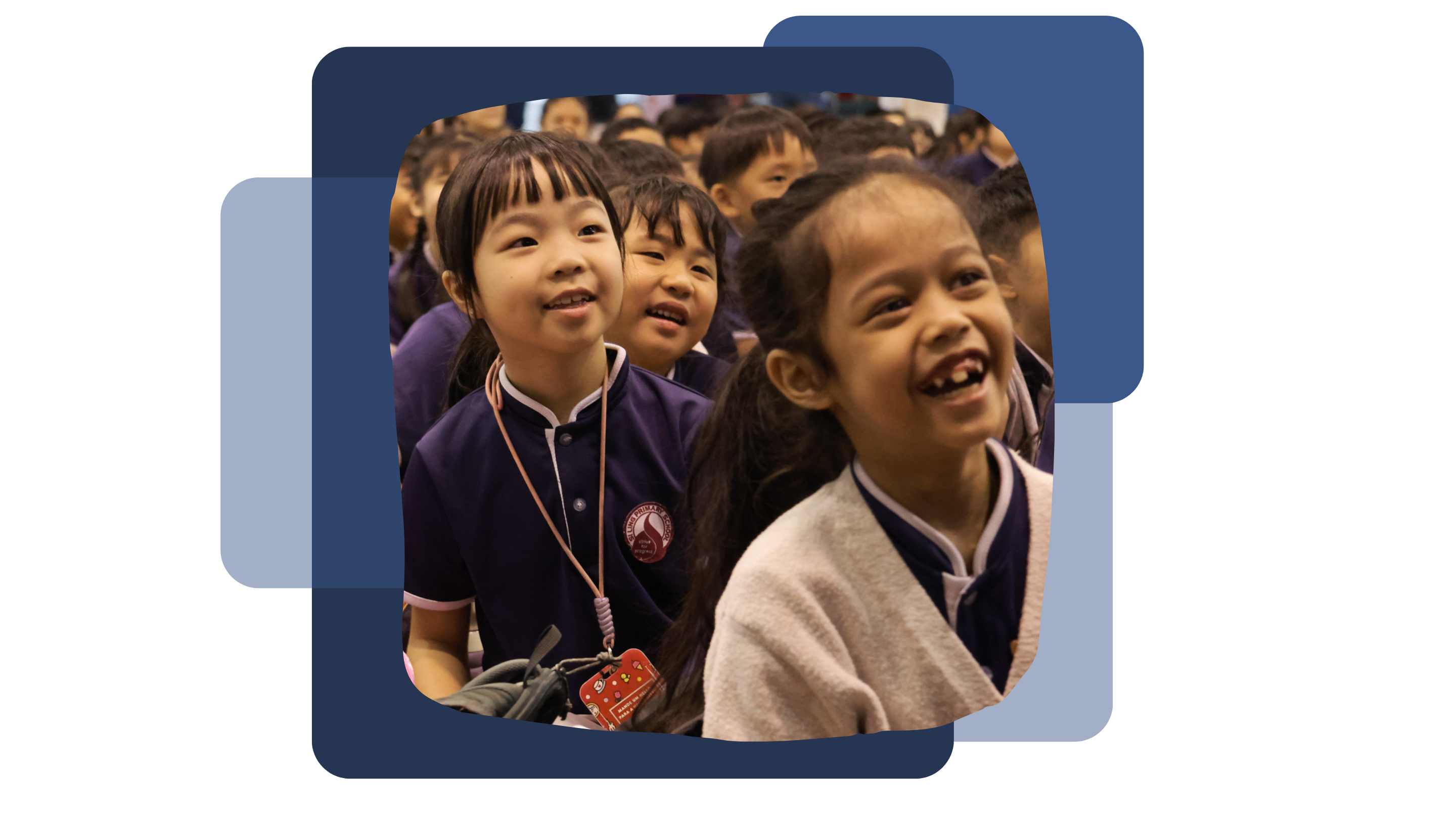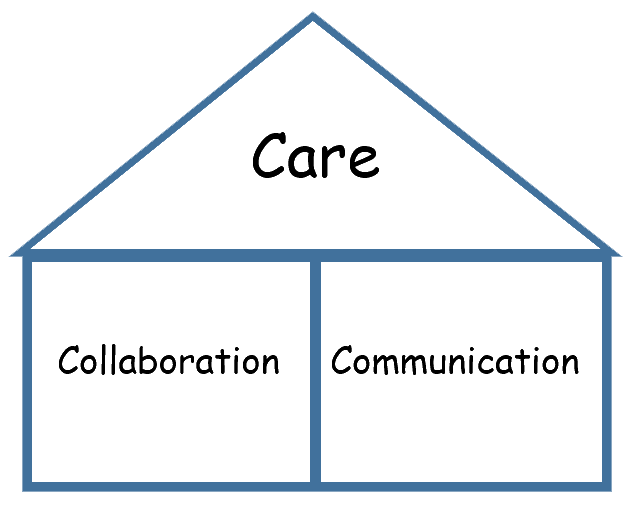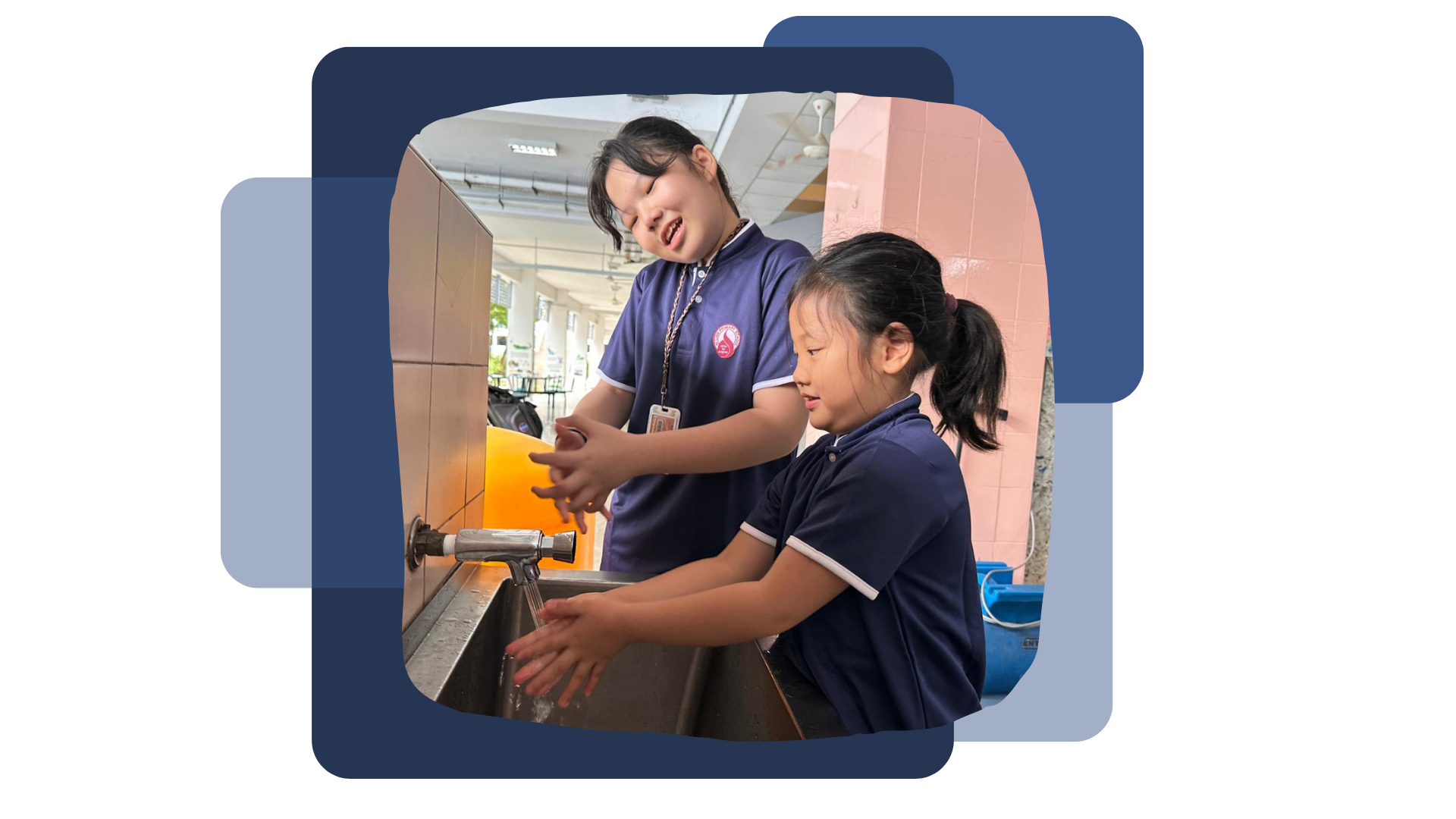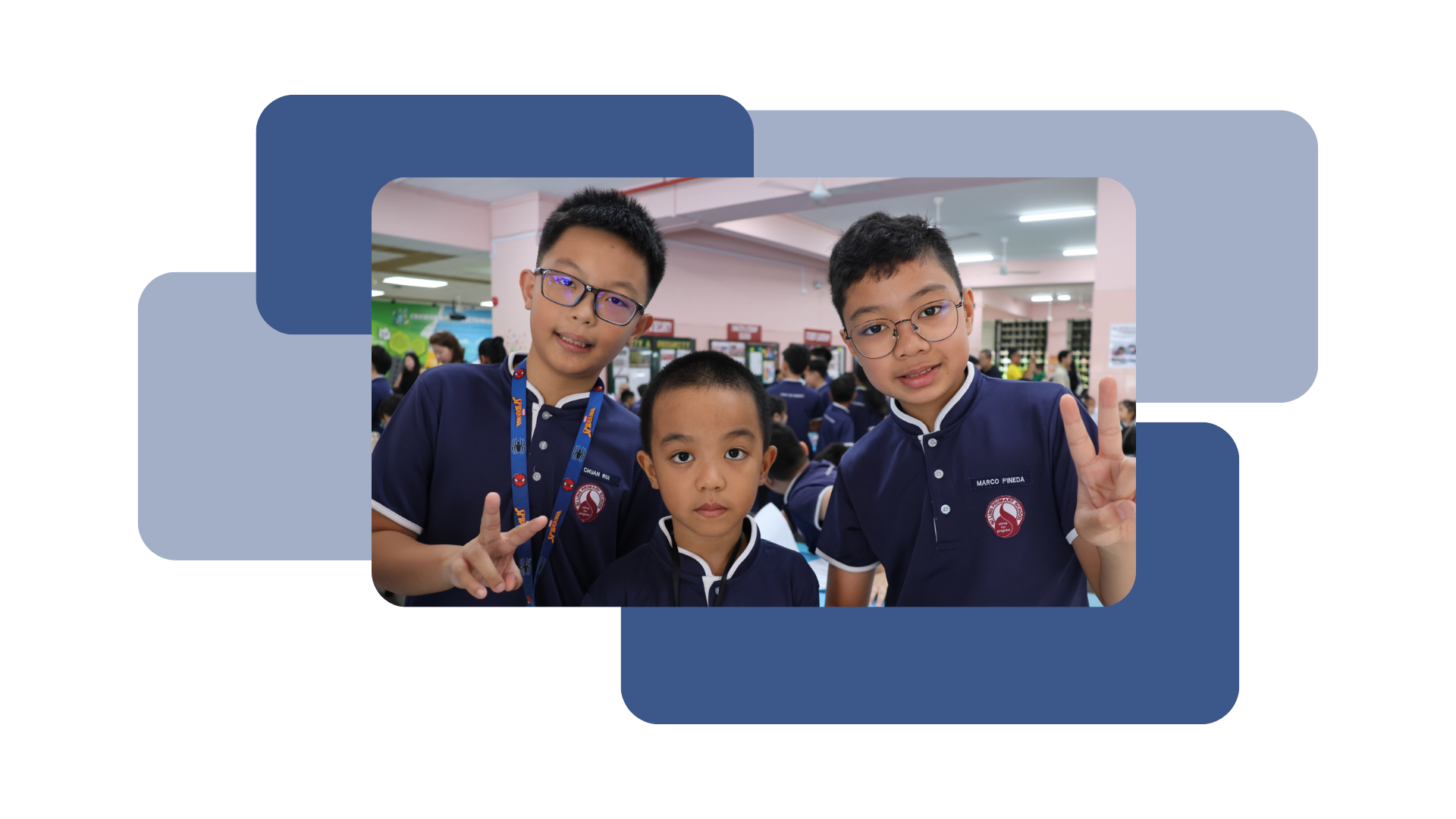P1 Transition Programme
P1 Transition Programme

P1 students do not start their formal curriculum in the first week. They have Orientation Week.
Rationale
Having a good transition plan from Kindergarten to Primary One is very important for young children. When they move from a preschool environment to a primary school, the change is huge. The changes start with environment and routine; then to intra- and inter-personal relationships. These changes can be overwhelming and daunting for any child.
To help children face these challenges, the framework will enable each Primary One student to adapt to their new environment effectively. A successful transition can have long-term positive outcomes for children both in their educational success and in terms of social and emotional development.
Objectives
To help our Primary One cohort transit seamlessly from the Preschool to the Primary School settings.
To enable Primary One students to gain confidence, become competent learners and develop a love for learning.
To instill skills that they can adapt to a new environment.

The 3Cs Approach
Care
Communication
Collaboration
1. Care
Social & Emotional Readiness
When children go through the transition from preschool to primary school, they will experience many changes at several levels:
- change in the school structure – size of school, subjects, school rules, etc.
- change in the classroom structure – size of class, seating arrangement, teaching methods, etc.
- change in relationships – teachers, peers, greater competition, etc Good mental wellbeing is a key factor in supporting children in their transition process. Children with good mental wellbeing are likely to be able to navigate their new surroundings with greater ease, and hence adjust better and faster to the new school setting.
2. Communication
Effective communication skills build a positive school environment built upon self-awareness. It involves active listening and clear respectful speaking. Effective communication is also key to positive partnership with parents. When teachers and parents share knowledge and experience, it has a positive on the child’s well-being and development.
3. Collaboration
Positive collaboration with the different stakeholders help to increase students’ wellbeing and academic achievements. When teachers collaborate with parents and the community, they help to develop the student holistically.
P1 students do not start their formal curriculum in the first week. They have Orientation Week.
Day 0 (last week of Dec)
P1 Form Teachers Engagement
- Sharing of Good Practices for Lower Primary Classroom
- Introduce Class Profile
- Support for SEN pupils
- Brief on Orientation Week
- TSR: Make the classroom feel welcome

P1 Parents Engagement
- Support for SEN pupils
- Emphasise that there will be no teaching in the first week, do not bring any books to school
- Provide parents with a list of things to bring
- Books will be collected only from the second week onwards
Day 1
Classroom Circle Time
- Getting to know your Form Teachers and Classmates
- School Virtual Tour
- Video on Canteen Etiquette (to be shown before recess)
- Icebreaker Games with classmates

Day 2
Classroom Circle Time
- Setting Classroom Routines
- PSR lesson 1
Express Yourself!
- Through Puppetry
- Writing/Drawing ‘About Me’
- Sing and Dance
Day 3

Classroom Circle Time
- Road Safety
- Pupils watch a video and practice the kerb drill
Apple Star Story
Teacher to share the Apple Star Story. Each pupil brings home an apple and narrate the story to their parents. Sets the tone for the new academic year: Work hard and you will succeed (get a star).
Highlights include bonding games, familiarization tours and setting of routines. We build in our children a sense of belonging and community so that they remain positive and feel secure about their new environment.
With the above framework in place, we seek to ensure that each child that comes to Si Ling Primary School has a smooth transition in Primary One.

